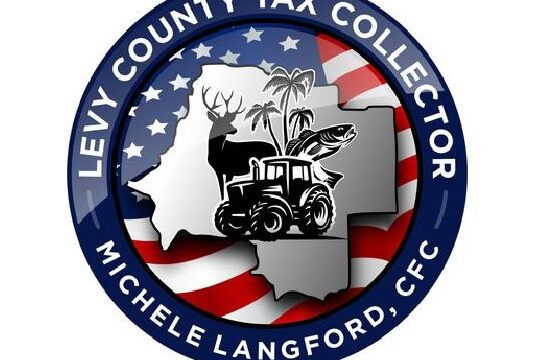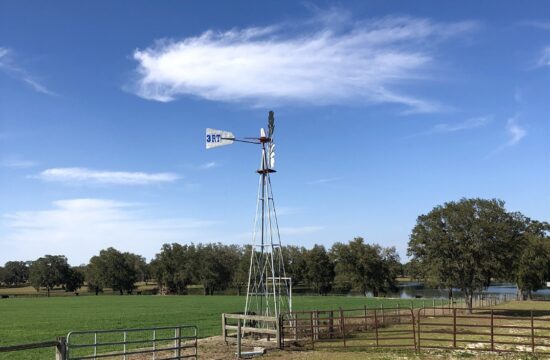By Terry Witt – Spotlight Senior Reporter
Morriston property owner Allen Fant has lost his county agricultural classification, and the big tax break that came with it, for a 60-acre manure composting facility he operates.
The county property appraiser’s office said the property wasn’t being used for any bona fide agricultural operation such as cattle, row crops, hay, timber, aquaculture, or anything else that would be considered agriculture.
A May 22 letter from Property Appraiser Jason Whistler was sent to Fant saying his composting operation doesn’t qualify for an agricultural classification.
Instead of paying about $300 in property taxes annually for the 60 acres when it was classified as agriculture, he will pay in the neighborhood of $12,000 this year, according to Whistler.
Fant’s land is now classified as vacant.
Whistler said Brian Jones, a deputy appraiser who handles agricultural classification of land, visited Fant’s property to find out if he was really engaged in bona fide agriculture on the property.
He wasn’t.
“Brian went down there. No agriculture was going on, so he sent him a letter of denial telling him the ag classification was coming off. He came in yesterday and questioned us about it and I said, ‘I don’t know what to tell you, it’s cut and dried. You either have it or you don’t,” Whistler said in a Wednesday interview. “I said I’ll certainly grant it if you have it in place by Jan. 1 (2024). We’ll come back and revisit. He mentioned a nursery, cows, and different things (he might do). I said if you have it in place we’ll come out and see what’s going on, but for this year, we can’t do anything with it.”
Fant can appeal to the Value Adjustment Board. Another option is to figure out how the land can be converted to a bona fide agricultural operation to win back his agricultural classification.
Whistler said Fant would get an agricultural classification on the portions of his property that he actually uses for bona fide agriculture in the future. Whistler said property appraiser records indicated Fant got the agricultural classification when he was using the property as pasture. He doesn’t know the length of time the property wasn’t used for agriculture. Legal counsel for the Florida Property Appraiser’s Association said Fant could not lawfully be charged for unpaid back taxes on the property.
Whistler said he can only deal with Fant on this year’s property classification. He said the property was being used for agriculture (pasture) at some point in the past.
“Obviously that has changed. We went back and realized it wasn’t what we were calling it. He’s going to have to do something to meet the requirements and come back and reapply for next year, which is what I told him,” Whistler said. “I said I have to treat him like everybody else. If he puts up a fence and gets so many head of cows, show us receipts, we’ll grant him an agricultural classification.”
Fant would need a bona fide agriculture operation ready for operation at the time of a property appraiser’s site visit in December to get an agricultural classification.
What if he puts a couple of cows on the property? Would that be enough to get the ag classification? Whistler was asked.
“He can’t just put a couple of cows out there. No, it’s got to be more than a couple of cows. When Brian goes out there, there’s certain things he looks for,” Whistler said. “We would like so many cows, maybe 2 or 3 per acre or as much as 5. We need to see receipts when he bought the cattle, that sort of thing. It’s not just a matter of going over to your neighbor’s and picking up two or three head of cattle and turning them loose.”
Whistler said he doesn’t want to be viewed as a tyrant. He doesn’t want people thinking if his staff doesn’t see a cow out in the pasture, the agricultural classification is going to be pulled.
“That would shorten my length of time in office, but then again, you either have it or you don’t,” Whistler said.
Whistler said he wasn’t singling out Fant for reclassification. He said three or four years ago, the previous property appraiser, the late Osborn Barker, began the process of reviewing all agriculturally classified property in the county. The process of visiting the properties and taking a look at how land was being used, and if there had been changes to agricultural operations, started in northwest Levy County. Jones then moved to the northeast section of the county starting in Raleigh and moving southward below Williston.
He said Fant’s property would have been revisited, at the latest by 2024, but after Whistler received complaints from Linda Cooper, founder and administrator of Spotlight on Levy County Government, and Rose Fant, a neighbor of Fant, complaining that Allen Fant’s property wasn’t being used for agriculture and wasn’t entitled to an agricultural classification, Whistler sent Jones to Fant’s property for a site visit a little ahead of schedule.
“Properties have been classified and assessed as pasture, but are currently being used for composting,” said Whistler in the letter denying Fant an agricultural classification. “The Florida DOR (Department of Revenue) does not recognize composting as a bona fide commercial agricultural use of land and therefore it can’t be classified as agriculture.”
Whistler showed Spotlight a pull-down menu on his desk computer showing property classifications recognized by the DOR. The classifications ranged from residential, to row cropping, timber, aquaculture, and more, but composting wasn’t listed as a property classification recognized by DOR.
“As far as I know, I couldn’t grant to him the composting classification because I don’t have that classification to grant. It’s not a recognized classification that the state gives,” Whistler said.
Whistler said he would like to work with people who want to claim an agricultural classification, but he doesn’t have the staff to chase people around who aren’t ready to prove they are a bona fide agricultural operation. He said they need to figure that out on their own, how to convert to bona fide agriculture, and come prepared to show his staff why they deserve the classification and the tax break that comes with it.

—————————
Enterprise reporting by Terry Witt May 31, 2023; Posted May 31, 2023













